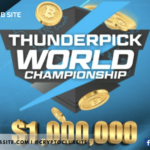INTRODUCTION
eSports, short for electronic sports, refers to competitive video gaming where professional players or teams compete against each other in various video game titles. It involves organized tournaments, leagues, and matches with a dedicated fanbase and substantial prize pools. eSports has gained significant popularity in recent years, attracting millions of viewers and creating a thriving industry around professional gaming.
Supporters argue that eSports deserves recognition as a legitimate sport due to its competitive nature, skill requirements, and global appeal. They believe that incorporating eSports into the Olympics would modernize the Games and attract a younger audience. However, others raise concerns about whether eSports align with traditional Olympic values and question the physicality and athletic nature of video gaming.
This blog explores the games that ought to be taken into account for Olympic participation if eSports were to be formally acknowledged. Factors such as player base, global reach, competitive infrastructure, and game design will be considered in determining which games have the potential to be part of the Olympic eSports program. Let’s begin.

CRITERIA FOR SELECTING ESPORTS FOR THE OLYMPICS
We will delve into factors such as the game’s competitive scene, established ruleset, player base, and global appeal. By examining these aspects, we can gain insights into the games that possess the qualities necessary for Olympic recognition in the exciting realm of eSports.
A. The game must have a strong competitive scene:
To be considered for the Olympic eSports program, a game should have a well-established and thriving competitive scene. This includes regular tournaments, leagues, and events at both regional and international levels. The presence of professional teams, organized rankings, and a clear progression path for players are indicators of a strong competitive ecosystem.
B. The game must have an established and consistent ruleset:
For Olympic inclusion, a game must have a well-defined and consistent ruleset that governs gameplay, competition format, and player conduct. A standardized ruleset ensures fair and equitable competition while promoting integrity and sportsmanship. The game’s rules should be widely recognized and followed by the competitive community.
C. The game must have a broad and diverse player base:
A game considered for the Olympic eSports program should have a large and diverse player base, transcending geographical boundaries and appealing to players from different backgrounds. A broad player base ensures the game’s popularity and longevity, indicating sustained interest and engagement among a wide range of individuals.
D. The game must have global appeal and following:
To be suitable for the Olympics, a game should have a significant global following. This includes a substantial viewer base, active fan communities, and widespread recognition across different regions and cultures. The game’s popularity should extend beyond its country or region of origin, demonstrating its ability to captivate audiences worldwide.
These criteria collectively aim to identify eSports titles that not only exhibit competitiveness but also possess the necessary foundations for a successful and inclusive Olympic eSports program. The popularity of the game, the integrity of the competition, and the game’s capacity to draw in a varied and international audience must all be balanced.

POTENTIAL ESPORTS FOR OLYMPIC CONSIDERATION
Here are some of the most notable eSports titles that the Olympic committee can consider in the future:
A. League of Legends:
League of Legends is a multiplayer online battle arena (MOBA) where two teams of five players fight against one another in an effort to destroy the opposing team’s base. Players take control of a champion with special skills, and they must cooperate to acquire money, pay for goods, and destroy opponent towers.
B. Dota 2:
Dota 2 is another MOBA game format with RPG features. Each of the two opposing teams (Radiant and Dire) has five players. In Dota 2, the main goal is to take out the enemy Ancient inside of their fortress. Each player controls a single Hero, a tactically potent unit with distinct powers and qualities that may be enhanced during the course of the game.
C. Counter-Strike: Global Offensive:
Players’ abilities, reflexes, and teamwork are put to the test in Counter-Strike: Global Offensive, often known as CS:GO. It centers on tactical clashes between terrorists and counterterrorist agents in scenario-based battles with clear objectives. Precision shooting, clever placement, and effective money management are all features of the very competitive CS:GO environment.
D. Overwatch:
Overwatch is a team-based first-person shooter that blends fast-paced action with diverse hero abilities. Set in a futuristic world, players choose from a wide range of heroes, each with unique skills, and work together to complete objectives and defeat the opposing team. Overwatch emphasizes teamwork, coordination, and strategic hero compositions.
E. FIFA:
FIFA is a popular sports simulation game focused on football (soccer). It allows players to control virtual teams and compete in life-like football matches. FIFA captures the essence of the sport with detailed gameplay mechanics, player animations, and realistic representations of real-life football leagues and tournaments.
F. Rocket League:
Rocket League is a unique combination of soccer and vehicular acrobatics. Players control rocket-powered cars and compete in fast-paced matches to score goals against the opposing team. With its intuitive controls, exhilarating gameplay, and emphasis on teamwork, Rocket League has gained a dedicated fanbase.
These potential eSports titles embody the qualities necessary for Olympic consideration. Each game possesses a strong competitive scene, an established ruleset, a broad player base, and a global appeal and following. While the final decision rests with Olympic officials, these eSports titles represent the forefront of competitive gaming and hold the potential to shape the future of Olympic eSports.

ANALYSIS OF POTENTIAL ESPORTS FOR OLYMPIC CONSIDERATION
From the exhilarating action of first-person shooters to the strategic battles of MOBAs, we’ll evaluate the skill, popularity, and global appeal of various eSports titles for the Olympics below.
A. League of Legends:
One of the most well-liked eSports games in the entire globe is League of Legends. It has a sizable player base and a vibrant competitive scene, which includes well-known leagues and an annual World Championship. LoL seems like a strong candidate for Olympic participation given its complex strategic structure, focus on collaboration, and devoted fanbase.
B. Dota 2:
Dota 2 shares many similarities with League of Legends and holds a prominent position in the eSports realm. The game boasts a dedicated player base and an incredibly competitive landscape. Its flagship event, The International, consistently offers substantial prize pools and garners significant attention. With its strategic gameplay, emphasis on teamwork, and international appeal, Dota 2 presents a compelling case for Olympic recognition.
C. Counter-Strike: Global Offensive:
In the eSports community, Counter-Strike: Global Offensive has been a mainstay. The game is an excellent candidate because of its tactical first-person shooting gameplay and continuing appeal. The competitive framework of CS:GO is well-established and includes prestigious competitions like the Intel Extreme Masters and ESL Pro League. Its presence in the eSports scene gives credence to any discussion of its possible inclusion in the Olympic schedule.
D. Overwatch:
Due to its intense action and tactical gameplay, the team-based first-person shooter Overwatch has acquired a passionate fan base. The game’s potential for universal appeal is demonstrated by the Overwatch League, which has city-based teams, making it a strong candidate for Olympic eSports.
E. FIFA:
As the most popular soccer video game franchise, FIFA holds a strong connection to the real-world sport and enjoys a massive global player base. With its annual releases and competitive modes like FIFA Ultimate Team, the game provides a platform for organized eSports competitions. FIFA’s association with the world’s most beloved sport and its broad appeal make it a worthy candidate for Olympic consideration.
F. Rocket League:
Rocket League merges high-octane racing and soccer-inspired gameplay into a unique and exhilarating experience. The game’s easy-to-understand concept and skill-based mechanics have garnered a dedicated player and spectator base. The Rocket League Championship Series showcases the game’s potential to engage a diverse audience, presenting it as a contender for Olympic eSports.
All the mentioned games have their merits and align with some or all of the selection criteria. They have established themselves as top-tier eSports titles with robust competitive scenes and global recognition. They also bring popularity and global reach, appealing to a broad audience. Lastly, their unique concepts and fast-paced gameplays provide a thrilling experience for viewers.
CONCLUSION
In considering which eSports games should be included in the Olympics, several criteria were outlined. These criteria included a strong competitive scene, an established and consistent ruleset, a broad and diverse player base, and global appeal and following. These factors help ensure the game’s legitimacy, inclusivity, and ability to engage a global audience.
We believe that every game we mentioned has its own distinct advantages. These games have demonstrated long-standing competitive scenes, strong player bases, and global appeal, making them suitable choices to represent the eSports community at the Olympic level.
However, it is crucial to note that the decision ultimately rests with the relevant Olympic governing bodies, who will carefully evaluate various factors, including the alignment with Olympic values, logistical considerations, and the opinions of experts and stakeholders in the eSports industry.
How about you? Do you think that the Olympics should include these games in its program? Sound off in the comments below.
For more up-to-date news and features about eSports, please visit our Crypto Club Site eSports News.










